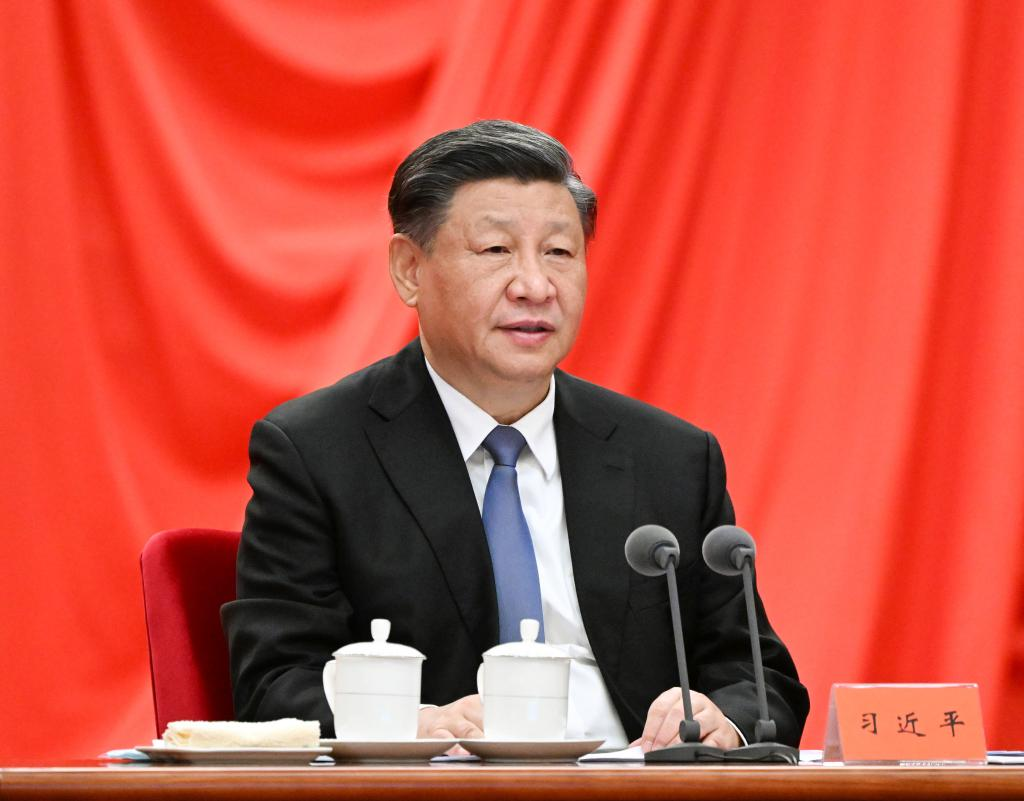Xi Jinping Calls for Enhanced Efforts to Promote High-Quality and Sufficient Employment

Beijing, The Gulf Observer: Xi Jinping, General Secretary of the Communist Party of China (CPC) Central Committee, has emphasized the need for concerted efforts to promote high-quality and sufficient employment while continuously enhancing workers’ sense of fulfillment, happiness, and security. Xi made these remarks on Monday while presiding over a group study session of the Political Bureau of the CPC Central Committee.
Highlighting the importance of a people-centered development philosophy, Xi urged the implementation of specific pro-employment policies aimed at improving both the quality and quantity of jobs. The session included a lecture by Mo Rong, head of the Chinese Academy of Labor and Social Security, who provided insights and suggestions on the issue of high-quality and sufficient employment.
The CPC leadership has consistently prioritized employment, creating an average of 13 million urban jobs annually since the CPC’s 18th National Congress in 2012. Xi stressed that employment is fundamental to the people’s well-being and is crucial for the country’s economic and social development, as well as its long-term peace and stability.
Valuable experience has been gained through practical measures such as promoting employment through development, targeting key groups, and driving employment through entrepreneurship. Xi called for the continuous improvement and long-term implementation of these practices.
For 2024, China aims to create over 12 million jobs in urban areas and maintain the surveyed urban unemployment rate at about 5.5 percent. The country’s surveyed urban unemployment rate stood at 5.2 percent in the January-April period.
Xi emphasized the need to prioritize high-quality and sufficient employment as a primary goal of economic and social development. He called for the development of new quality productive forces tailored to local conditions to create more high-quality jobs. Support should be provided to industries and enterprises with strong job-creation capacities, and new business forms and models should be nurtured to generate more employment opportunities.
An employment-friendly development model should be established by assessing the impact of major policies, projects, and the distribution of productive forces on employment. Policies related to fiscal, monetary, investment, consumption, industrial, and regional development should be made more conducive to job creation.
Addressing the supply-demand imbalance in the workforce that leads to structural unemployment is imperative, Xi noted. He stressed the importance of analyzing workforce development trends and adjusting higher education majors and resource distribution accordingly. Vocational education and the lifelong vocational training system should be enhanced to meet employment market demands.
Xi also called for improved employment support policies for college graduates and other young people, with China expecting over 11.7 million college graduates this year. Measures should be taken to promote the employment of migrant workers, stabilize the number and income of those lifted out of poverty, and provide more assistance to groups facing employment difficulties. Attention should also be given to the employment of ex-service personnel and women.
To protect workers’ rights and interests, Xi urged the deepening of employment system and mechanism reforms. He also called on Party committees and governments at all levels to prioritize employment-related work, underscoring the critical role of employment in the nation’s overall development strategy.


